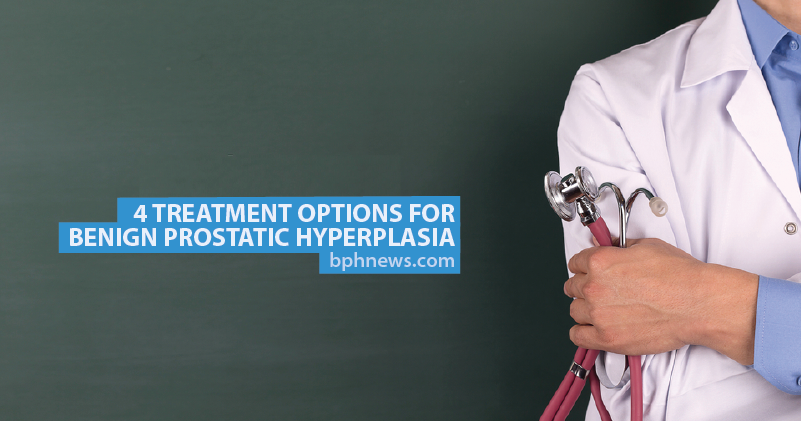Benign prostate hyperplasia is a common condition which typically affects men as they get older. It tends to cause difficulties urinating and if left untreated, can become quite serious. Following a diagnosis of benign prostatic hyperplasia (BPH), your doctor will probably recommend one of four treatment options. We’ve compiled a list of these options based on information from the NIH.
Changes to Lifestyle
For some men, BPH won’t pose any immediate problems and your doctor may advise that you continue to monitor your situation periodically while changing some of your everyday habits. Eating foods known to promote prostate health, exercising the pelvic floor, cutting back on drinks late in the evening, bladder training and avoiding alcohol and caffeine are all ways that you can self-treat mild cases of BPH. Constipation can exacerbate BPH symptoms, so treating and preventing it is important.
Some prescribed and over-the-counter medications can make BPH symptoms worse, so avoiding decongestants, antidepressants, diuretics and antihistamines should help.




